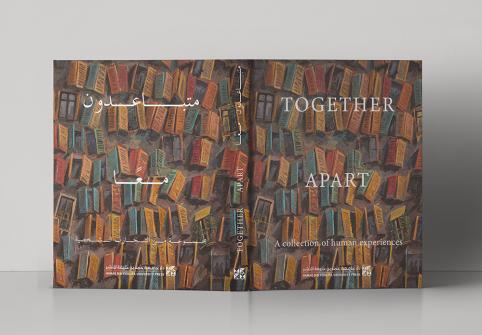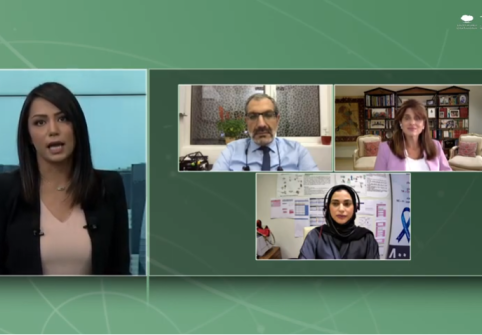Opinion editorial Islam, COVID-19 and the Global Moral Panic
From media reports to private conversations, COVID-19 is all anyone is talking about at home and abroad. The spread of the virus has created panic around the world, prompting the cancellation of flights and events, closures of gyms, restaurants, theaters, and mosques, as well as the postponement of weddings and parties. More strict measures include the lockdown of entire cities and the isolation of vulnerable members of society. We need to remember that these limitations serve a purpose “And it may be that you dislike a thing which is good for you” (Quran 2:216). Moreover, it’s not only global affairs and related systems that are being tested by the pandemic but also our moral values. Whether it is food hoarding, sanitizer stocking or corona racism, we are witnessing various forms of moral anxiety that jeopardize our conception of fair, just and inclusive societies.
The global moral panic we are living through is making us forget that "modesty is part of faith" (Sahih al-Bukhari, 8:73:139). Fighting over the last stack of toilet paper and hoarding hand sanitizers and masks means that supplies dwindle and prices rise for other people. A drop in blood donations risks the cancellation of lifesaving operations. Rumors concerning the spread of COVID-19 from its place of origin in Wuhan to the wider world have sparked incidents of racism against Chinese communities.
With this in mind, the global mayhem and moral panic caused by COVID-19 provides the ideal opportunity to rethink global values and human development in general. COVID-19 is a highly contagious disease, with symptoms ranging from mild illnesses like the common cold to more serious conditions such as pneumonia. The virus was recently reclassified by the World Health Organization (WHO) as a pandemic, which, according to Director-General Tedros Adhanom Ghebreyesus, is not a word to be used lightly or carelessly. Ghebreyesus also warns that, if misused, ‘pandemic’ can also cause unreasonable fear or unjustified acceptance that the fight is over, leading to unnecessary suffering and death.
While COVID-19 has limited and fixed symptoms, the moral panic it has caused has many manifestations. Health ramifications aside, we are grappling with a wide array of irrationalities, disproportionate reactions, and episodes of anxiety. What we’re seeing in the media – not to mention the behavior of the general public - should make us all question how we tackle this moral panic in order to put everyone at ease and become a fairer, just, and inclusive society in the process. This is particularly reminiscent of events three years ago when the blockade of Qatar prompted inhabitants to rush to supermarkets to get as much food as they can before resources run out. This simply didn’t happen.
Similarly, if we continue to strip supermarket shelves bare others are deprived of essential products, which in turn creates a problematic sense of individualism. Behaving in such a way shows us that it is time to ask the question where do we stand in terms of raising youths that care about morality at a global level? Allah (SWT) blessed humans with the gift of free choice. We are equipped with al-‘Aql (intellect or reason) and human dignity (Karamah) to make our choices. Prophet Mohammed indicated that “Nothing worships (adores) Allah as does al-‘Aql”. Accordingly, it is time to take a step back and actively think about how we can avoid such conflicts and reduce the moral panic gripping our communities.
The Secretary-General of the United Nations, Antonio Guterres, indicated that the declaration of COVID-19 as a pandemic was a call for responsibility and solidarity. In this respect, our youth has a prominent role to play. That is why the College of Islamic Studies (CIS) at Hamad Bin Khalifa University (HBKU) is challenging Qatar’s youths to take advantage of the time they are spending at home to think about how to tackle the issues that arise with the increase of moral panic. This challenge is entitled “COVID-19 and the Global Moral Panic: Youth Challenge” and it invites youths to join in by shedding light on the global moral panic.
For more details please visit on CIS’ work, please visit cis.hbku.edu.qa.
This article has been co-authored by M Evren Tok, an assistant dean at the College of Islamic Studies and Bayan Khaled, a research fellow at the College of Islamic Studies at Hamad Bin Khalifa University.




